When driving long distances, especially at night, it is common to feel tired. If you need to stay awake while driving, make sure to get energy before a long drive by having a short nap. On the road, drink caffeine and have small, healthy snacks. You can also do things like listen to music or radio shows to stay alert. If you are too tired to drive, pull over and rest. It is extremely dangerous to drive when you're unable to stay awake.
Method 1
Getting Energy Before a Long Drive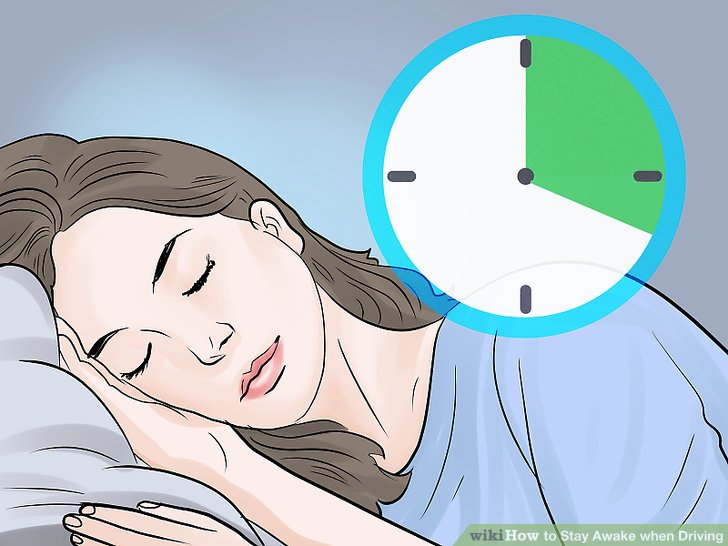
Take a nap before hitting the road. A brief twenty minute sleep can help you recharge before driving. If you have a big drive coming up, try to slip away for a short twenty minute nap before getting on the road. Even less than an hour of sleep can provide the rest you'll need to stay alert driving.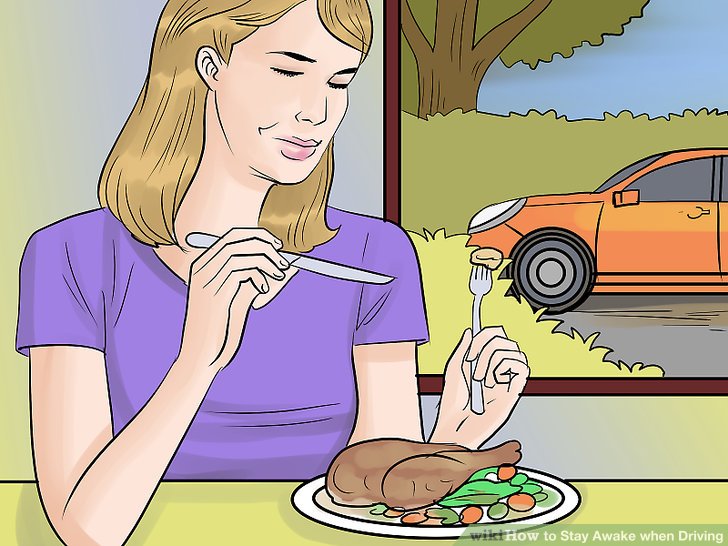
Have a healthy meal. Food helps give your body the energy it needs to sustain itself. Prior to driving, have a healthy meal. Opt for energizing foods that will give you the power to stay awake for long hours driving.
- Go for complex carbohydrates and protein. Whole grains and lean protein, like turkey and chicken, can help you stay alert during long hours on the road.
- Avoid convenience foods, such as fast-food, or anything high in sugar or processed carbs. Such foods are likely to make your energy dip shortly after eating.
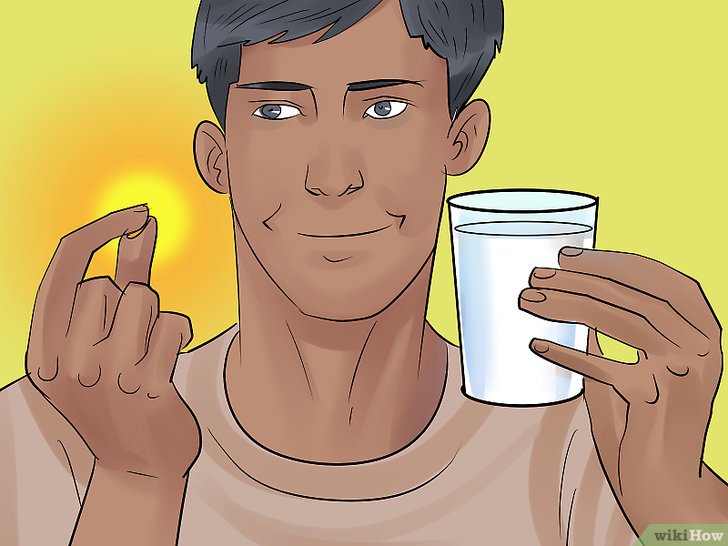
Take vitamins. Vitamins B and C give you energy. Try taking a vitamin B or C tablet after having a healthy meal. This can help wake you up for a long drive.
- Talk to your doctor before taking vitamins regularly so you know what dose is safe for you. Also, make sure the vitamins you take do not interfere with existing medication.
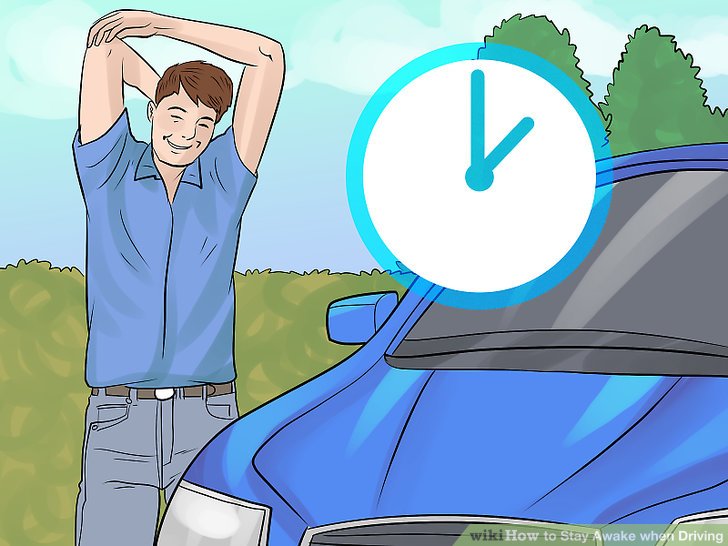
Select the right times to drive. If you can decide when to start driving, drive when you feel your most energetic. Pay attention to your natural energy spikes and dips throughout the day, and plan to drive when you're at your most energetic.[4]
- For example, if you start to really wake up and feel energetic around 9 AM, plan to drive around that time of day.
Method 2
Using Food and Drinks to Stay Alert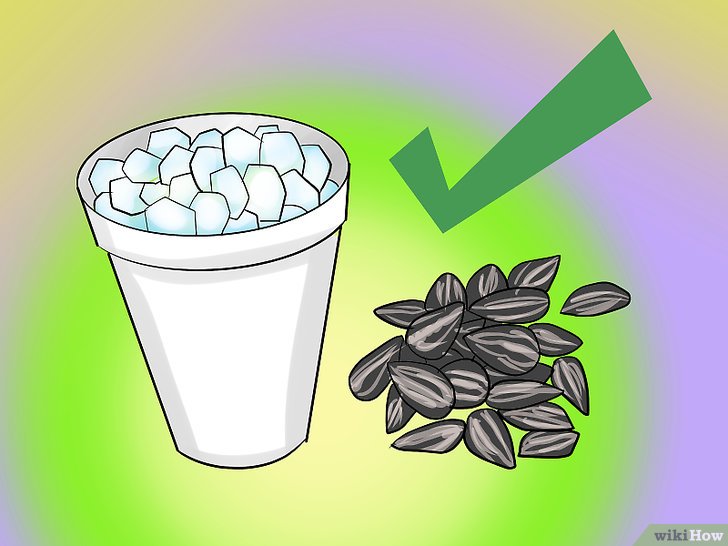
Have 100 calorie snacks. Snacks around 100 calories will help wake you up a little, providing enough sustenance to combat fatigue. Anything heavier than 100 calories may make you crash after eating, so opt for healthy 100 calories snacks while driving.
- Sunflower seeds are often sold in 100 calorie packs and can keep you energized. Stock up on a few packs of sunflower seeds and eat them as necessary while driving.
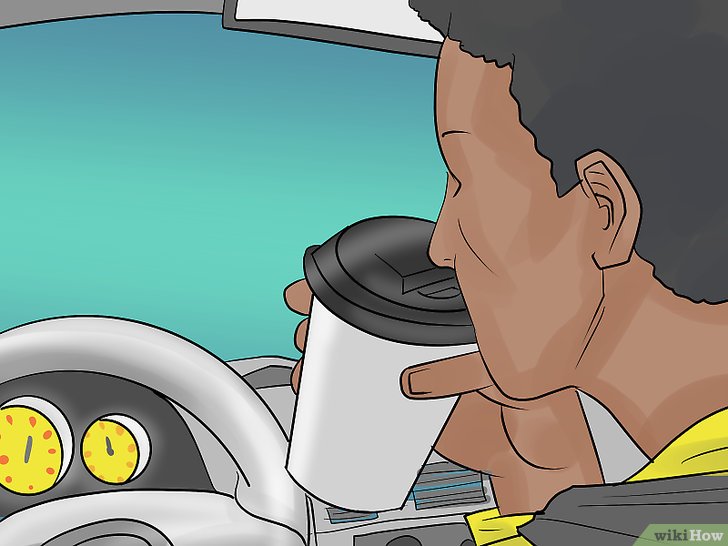
Drink caffeine. A single cup of coffee contains about 75 milligrams of caffeine. This is enough to wake you up a little while driving, keeping you alert. Have one cup of coffee if you start to feel tired. This should give you an extra jolt that will help you keep going.
- Keep your eyes open for filling stations and coffee shops along the road. When you feel tired, pull over at one of these places and have a cup of coffee. Plus, you'll get to stretch your legs when not behind the wheel and you could even have a longer sleep if you wish.
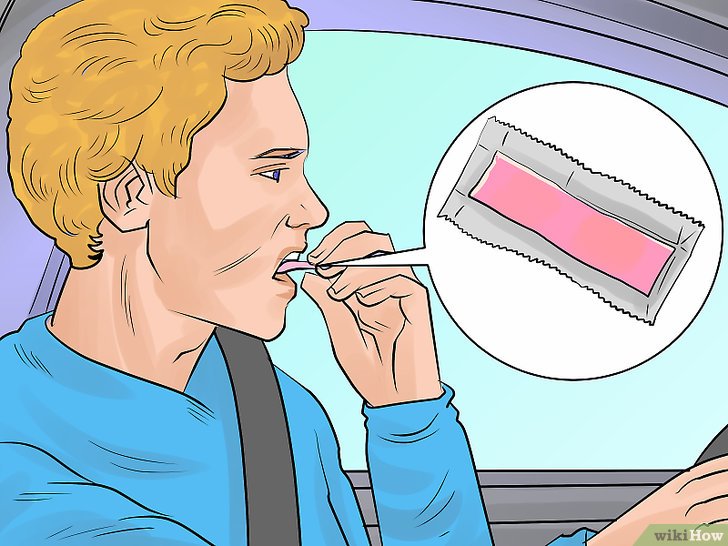
Chew gum. This will keep your mouth busy. If you have something that occupies you, this can help you focus and stay awake. Pick up a couple of packs of chewing gum for a long trip. If you start to feel drowsy, chew some gum.
- Make sure to go for sugar-free gum. Sugary gum can cause a sugar crash, leaving you feeling more tired than you were before.
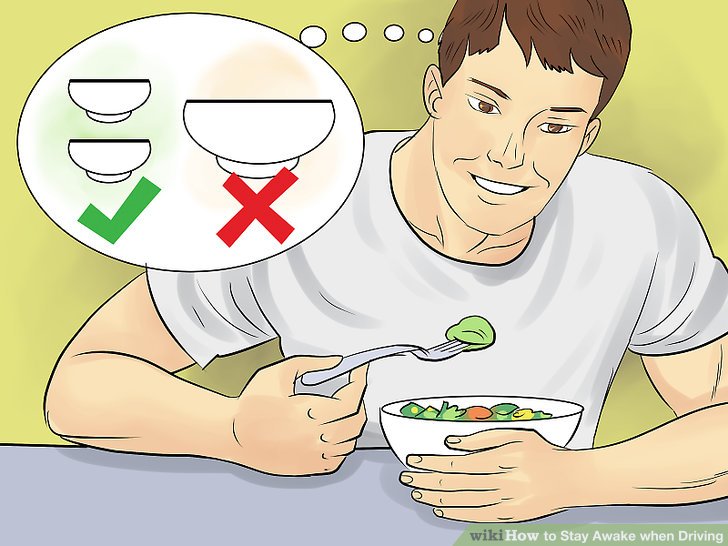
Watch your portion size. If you have to pull over and eat, go for small portions. Big, heavy meals can cause you to crash and become tired. Go for small portions and tiny meals when you pull over and snack on light foods throughout the drive. A number of small meals will keep you more energized than one or two big meals.
- For example, have half a sandwich at one stop and, when you're hungry again, pull over and eat the other half.
- Remember to go for energizing foods like fruits, vegetables, whole grains, and lean proteins.
Method 3
Staying Alert in Other Ways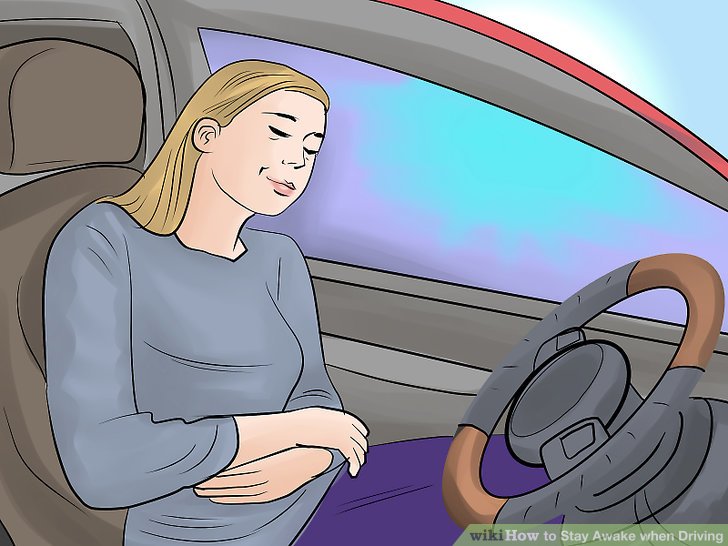
Try a mid drive nap. If you're getting tired while driving, pull over and take a nap. A short fifteen to twenty minute nap can recharge your brain, giving you the stamina you need to keep driving. Find a safe place to pull over and nap for about fifteen to twenty minutes.
- Choose a place far enough away from the main road you will not get hit by oncoming traffic. You should also choose a place that is not too isolated, such as car park near a filling station, for your safety.
- Set an alarm. You do not want a twenty minute nap to turn into an hour long nap.

Turn your music up to 90 decibels. If you're feeling drowsy, take advantage of your car's stereo system. Turn the music up to at least 90 decibels. This should be disruptive enough that your body will be jarred awake.
- See if your car's radio measures decibels. If it does not, just try to estimate. Turn up the car's radio until the noise is loud enough that you feel awake.
- Only turn the radio or stereo up this high for brief periods when you're tired, however. Habitually listening to music this loud can damage your hearing.

If you can, travel with someone. If at all possible, bring someone else along if you're driving on a long journey for several hours. Having another person in the car can keep you alert as the two of you can take turns driving. If you feel very tired, have the other person drive for a while.
Open a window. The cool sensation of cold wind hitting your face can wake you up. If you start to feel tired, open a window for a few minutes. In addition to providing a cooling sensation, it will create a great deal of background noise. This will prevent you from nodding off.
Find media to help you stay entertained. Try listening to something you have to focus on. Listening to music for an entire trip can cause you to zone out. Instead, try listening to things like books on tapes, podcasts, and radio shows. You will end up focusing on the words, which will engage your attention and help prevent you from nodding off.
Method 4
Staying Safe
Recognize the signs that you're too tired to drive. If you're too tired to drive safely, stop driving for the night. Driving when tired is extremely dangerous and can lead to accidents. If you notice any of the following, you are too tired to drive:
- Frequent blinking and heavy eyelids
- Difficulty keeping your head up
- Frequent daydreaming
- Missing traffic lines, drifting into other lanes, tailgating
- Difficulty remembering the last few miles you drove

Read medication labels carefully. Some medication can cause drowsiness. If you're on any medication, read the label carefully. Make sure drowsiness is not a side effect.
- If a medication causes drowsiness, it may not be safe to use while driving. If you have a medication you need to take regularly that causes drowsiness, talk to your doctor about how to manage driving while taking the medication.

Avoid driving between midnight and 6 AM. These are the times where your circadian rhythm has a natural dip. It is dangerous to drive during these hours as there is an increased risk of falling asleep at the wheel. If at all possible, refrain from driving between midnight and six in the morning.
Do not drink alcohol before driving. Alcohol, even in small amounts, causes drowsiness. Do not have anything to drink before you need to get behind the wheel of a car.
Source: WikiHow